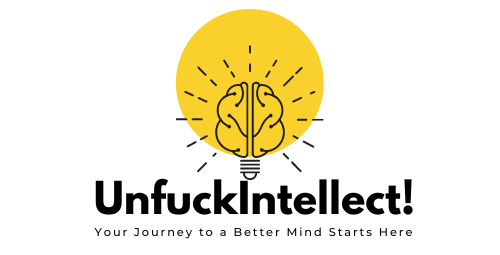
In today’s fast-paced world, our emotions often feel like they’re being pulled in a thousand different directions. Whether it’s the stress of work deadlines, family responsibilities, or social pressures, navigating our emotional landscape can sometimes feel overwhelming. Yet, how we handle these emotions is what truly defines our mental and emotional well-being. This is where emotional intelligence (EI) – the ability to understand, manage, and harness emotions – comes into play. If you’ve ever wondered how some people stay calm under pressure, navigate difficult conversations with grace, or just seem to have an uncanny ability to read the room, they likely have a high level of emotional intelligence.
But EI isn’t some magical, unattainable skill. It’s something we can all develop with a bit of focus and practice. In this detailed guide, we’re going to dive deep into emotional intelligence and emotional regulation – the pillars of mastering your emotions. Not only will you learn how to better understand your feelings, but you’ll also discover strategies to manage them, helping you navigate life’s inevitable ups and downs with more control, grace, and resilience.
Contents
What is Emotional Intelligence?
Emotional intelligence is the capacity to recognize, understand, and manage not only your own emotions but also the emotions of others. This concept, popularized by psychologist Daniel Goleman, suggests that success isn’t solely determined by cognitive intelligence (IQ), but by emotional intelligence (EQ). The higher your EQ, the more adept you are at reading situations, connecting with others, and regulating your own emotional responses.
Goleman outlined five core components of emotional intelligence:
- Self-Awareness – Knowing what you’re feeling and why.
- Self-Regulation – The ability to control or redirect disruptive emotions and impulses.
- Motivation – Using your emotions to drive yourself toward goals, especially in the face of setbacks.
- Empathy – Understanding the emotional makeup of others.
- Social Skills – Managing relationships to move people in desired directions.
These five elements together form a framework for understanding the emotional side of life. Imagine trying to navigate your day without recognizing what you’re feeling. You’d be reacting to stimuli without truly knowing why – much like a boat drifting aimlessly in a storm. Emotional intelligence gives you the compass and the tools to steer through choppy waters.
The Real-World Importance of Emotional Intelligence
1. Making Better Decisions
Emotional intelligence allows us to pause and assess situations before making impulsive decisions. Have you ever made a snap judgment based on anger or frustration, only to regret it later? That’s where EI comes in. By recognizing our emotional state and understanding its impact on decision-making, we can make more rational, thoughtful choices.
2. Building Stronger Relationships
Think about the last time you had a conflict with someone. Was it because they didn’t understand your point of view or vice versa? A significant part of emotional intelligence is empathy – the ability to put yourself in someone else’s shoes. When you can grasp what another person is feeling, you’re better equipped to resolve conflicts, offer support, and build lasting relationships.
3. Boosting Mental Resilience
Life is unpredictable. We all face disappointments, challenges, and stress. Emotionally intelligent individuals possess a level of resilience that allows them to bounce back quicker from setbacks. They don’t suppress their emotions but instead acknowledge them, process them, and move forward with a more balanced mindset.
4. Mental Health and Well-Being
People with high emotional intelligence are typically more in tune with their emotional states, which helps them avoid mental health pitfalls like chronic stress, anxiety, and depression. Emotional regulation plays a massive role in keeping emotions in check, ensuring that feelings like anger, sadness, or frustration don’t spiral out of control.
5. Leadership and Influence
In professional environments, emotional intelligence separates the good leaders from the great. Emotionally intelligent leaders foster trust, communicate effectively, and inspire their teams. They can read the room, sensing when morale is low or tensions are high, and take steps to improve the atmosphere.
Emotional Regulation: Your Emotional Control Center
While emotional intelligence is about understanding emotions, emotional regulation is all about how you control them. It’s the process of influencing which emotions you have, when you have them, and how you experience and express them. Emotional regulation can be the difference between calmly resolving a conflict or letting anger get the better of you.
Types of Emotional Regulation
- Cognitive Reappraisal Cognitive reappraisal is like changing the lens through which you view an emotional event. When a situation sparks a negative emotion, you shift your perspective to alter your emotional response. For instance, instead of seeing a failed project as a sign of incompetence, view it as a learning opportunity.
- Expressive Suppression This technique involves holding back emotional expressions. While it’s sometimes necessary (e.g., maintaining professionalism at work), relying too heavily on suppression can be harmful. Suppressed emotions often resurface in unhealthy ways, so it’s crucial to strike a balance.
- Mindfulness and Presence Mindfulness involves staying present and observing your emotions without judgment. By practicing mindfulness, you can prevent yourself from getting swept away by negative emotions, allowing you to approach situations with more clarity and calmness.
- Problem-Solving Approach Emotional regulation can also involve taking direct action to address the cause of negative emotions. For example, if financial stress is causing anxiety, developing a budget or seeking financial advice can help alleviate the pressure.
- Seeking Emotional Support Sometimes, we need a bit of external help to regulate emotions. Reaching out to friends, family, or a therapist can provide perspective, comfort, and guidance during emotional turbulence.
Practical Steps to Improve Emotional Intelligence and Regulation
Improving emotional intelligence isn’t an overnight process, but it’s achievable with consistent effort. Here’s how you can start:
1. Develop Self-Awareness
Start by regularly reflecting on your emotional state. Journaling can be an effective tool for this, helping you track how different events trigger different emotions. Over time, this reflection will help you become more aware of how your emotions affect your thoughts and behaviors.
2. Master Emotional Regulation Techniques
When you feel overwhelmed by your emotions, try one of the following techniques:
- Pause and breathe: Slow, deep breathing can reduce emotional intensity, giving you space to think.
- Label your emotions: Naming your feelings (“I’m angry,” “I’m disappointed”) helps distance you from them and gives you more control.
- Reframe your thoughts: Instead of focusing on negative aspects, look for the silver lining in the situation.
3. Practice Empathy Daily
Empathy isn’t just about being nice – it’s about genuinely understanding and connecting with others’ emotions. Listen actively during conversations, ask thoughtful questions, and try to see the world from the other person’s perspective.
4. Strengthen Your Social Skills
Strong social skills aren’t just for extroverts. You can improve your communication and conflict resolution abilities by practicing:
- Active listening: Pay attention to what’s being said without planning your response mid-conversation.
- Clear communication: State your feelings and needs directly, but without aggression or blame.
- Positive conflict management: Approach disagreements as opportunities to find solutions rather than win arguments.
5. Stay Motivated Even in Setbacks
Motivation fueled by emotional intelligence goes beyond fleeting excitement. When faced with adversity, use your emotional resilience to reframe setbacks as opportunities for growth. Remember, the key to sustained motivation is connecting with the “why” behind your goals, not just the “how.”
Emotional Intelligence at Work
In the workplace, emotional intelligence can be your secret weapon for success. Many businesses are now prioritizing EQ over IQ when hiring or promoting leaders. Employees who display emotional intelligence are better at handling pressure, communicating effectively, and managing relationships. In fact, emotionally intelligent employees often experience greater job satisfaction and are more likely to contribute positively to team dynamics.
Leaders with high emotional intelligence inspire their teams, address conflicts before they escalate, and create an environment of trust and open communication. If you’re aiming for a leadership role or want to enhance your impact at work, boosting your emotional intelligence is one of the best investments you can make.
Conclusion: Mastering Your Emotions for a Better Life
Understanding and managing emotions is about more than just feeling good. It’s about gaining control over your emotional responses and learning to navigate life’s challenges with balance and insight. Emotional intelligence and regulation are lifelong skills that can transform every aspect of your life – from personal relationships to career success and mental well-being.
You don’t need to be perfect, but with consistent practice and self-awareness, you can strengthen your emotional intelligence over time. As you grow in this area, you’ll find yourself more capable of handling conflict, managing stress, and building stronger connections with others.
Remember, emotional intelligence isn’t about suppressing or ignoring your emotions – it’s about understanding them, embracing them, and using them to enhance your life. Embrace the journey of emotional growth, and you’ll not only improve your own well-being but positively impact everyone around you.]
for more such articles : unfuckintellect.com



